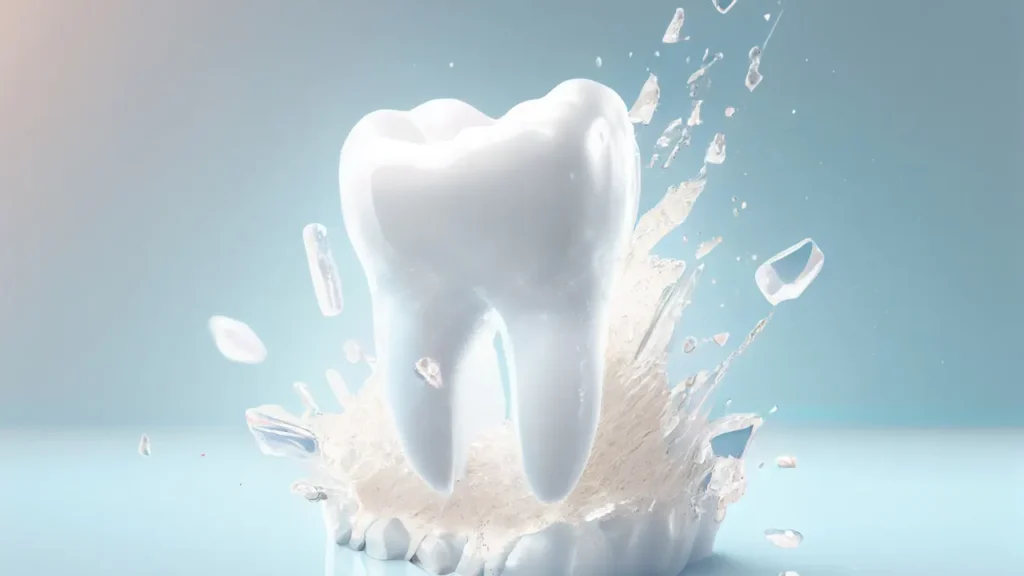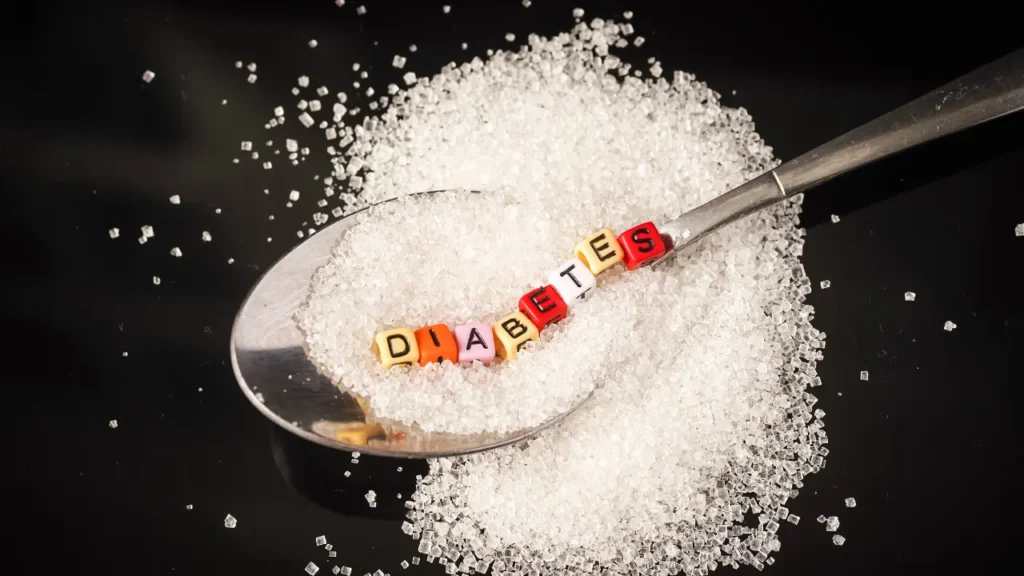The plant called stevia rebaudiana is the source of stevia, a natural sweetener that has drawn a lot of attention due to its possible health advantages, particularly for those looking to improve their cognitive abilities like focus and alertness. Stevia, as opposed to artificial sweeteners, has substances called steviol glycosides, such as rebaudioside A and stevioside, which give it its sweetness and medicinal properties. The nature of stevia, its health advantages, the best dosage, negative effects, possible drug interactions, and responsible use as a nootropic supplement are all covered in detail in this article.
You May Also Like:
Dr Emil Nutrition Lion’s Mane Reviewed: A Leading Nootropic Mushroom Product
Stevia: Benefits, Dosage, Side Effects, Drug Interactions, and Other Important Information is an original (NootropicsPlanet) article.
Nature of Stevia
Stevia is a naturally occurring, calorie-free sweetener that is taken from the leaves of the South American native plant stevia rebaudiana bertoni. Stevia is derived from plants, unlike artificial sweeteners, and its sweetening properties come from the presence of steviol glycosides, primarily stevioside and rebaudioside A. These special chemicals provide a strong sweetness without increasing calorie intake, making stevia a preferred option for individuals looking for natural sweeteners. The plant itself is a little perennial herbaceous member of the asteraceae family that grows well in tropical and subtropical environments. The use of stevia as a sweetener has a long history; indigenous tribes have long used it as a herbal remedy and to sweeten their drinks.
Health Benefits of Stevia
Glycemic Control
One of stevia’s most well-known health advantages is its assistance with glycemic control. It’s a great option for those with diabetes and for controlling their blood sugar levels because it doesn’t cause the blood glucose spikes that are linked to many other sweeteners. Stevia can increase the synthesis of insulin, improving glucose absorption by cells and preserving steady blood sugar levels. This control over glucose metabolism provides a sweetening substitute that doesn’t compromise insulin sensitivity or glycemic control, which can help prevent and treat type 2 diabetes.
Antioxidant Properties
Stevia’s component makeup, which includes steviol glycosides as well as other flavonoids and phenolic compounds, gives it its antioxidant abilities. By scavenging dangerous free radicals from the body, these antioxidants guard against oxidative stress, which can disrupt DNA, proteins, and cells. Numerous chronic illnesses, such as cancer, cardiovascular diseases, and age-related cognitive decline, are associated with oxidative stress. Stevia helps maintain the health and longevity of cells by reducing oxidative damage, thereby bolstering the body’s defensive mechanisms against environmental and metabolic stressors.
Anti-inflammatory Effects
Chronic inflammation is a root cause of many diseases, including heart disease, diabetes, and neuro-degenerative conditions. Stevia exhibits anti-inflammatory properties by inhibiting the production of pro-inflammatory cytokines and mediators, thereby reducing inflammation throughout the body. This can have protective effects against the development of chronic diseases and can improve conditions characterized by inflammation.
Weight Management
Given its non-caloric nature, stevia is a valuable tool for weight management. It allows individuals to enjoy sweet flavors without the calorie intake associated with sugar, which can contribute to weight gain and obesity when consumed in excess. Incorporating stevia into a balanced diet can help reduce overall caloric intake, supporting weight loss efforts and reducing the risk of obesity-related health issues.
Dental Health
Stevia doesn’t nourish bad oral bacteria like sugar does, which can lead to cavities and tooth decay. Therefore, by lowering the incidence of cavities and gum disease, using it as a sweetener can enhance dental health. Since stevia doesn’t include sugar alcohols, it also doesn’t cause the gastrointestinal distress that other sugar replacements frequently do.
Blood Pressure Regulation
Certain research indicates that stevia might be advantageous for controlling blood pressure. It has been demonstrated that several steviol glycosides can widen blood vessels and increase urine production, both of which can lower blood pressure. In addition to its glycemic and weight management effects, stevia can also have cardiovascular benefits, though further research is required to fully understand this effect.
The health benefits of stevia extend well beyond its ability to act as a natural, zero-calorie sweetener. Its contributions to glycemic control, antioxidant and anti-inflammatory properties, weight management, dental health, and potentially blood pressure regulation highlight its role as a multi-functional dietary component. These properties make stevia not only a safe sweetener choice for a wide range of individuals but also a potentially beneficial addition to a health-conscious diet.

Chemistry of Stevia
The distinctive chemical makeup of stevia, which comes from the stevia rebaudiana bertoni plant, is what gives it its sweetness and medicinal properties. Steviol glycosides, a class of chemicals with a steviol backbone linked to various sugar molecules like glucose, rhamnose, and xylose, are the main bio-active ingredients of stevia. Due to their strong sweetness and low calorie content, stevioside and rebaudioside A are the most prevalent of the many steviol glycosides that have been discovered and have been the subject of much research.
These glycosides do not raise blood glucose levels because of their molecular makeup, which enables them to interact with the tongue’s sweetness receptors without being digested in the same way as regular sugars. These glycosides contain a diterpene molecule called steviol, which is hydrophobic. This property allows it to pass through cellular membranes and perhaps have a variety of intracellular effects. However, the solubility, stability, and intensity of sweetness of these compounds are mostly determined by the sugar moieties that are bonded to the steviol backbone.
Steviol glycosides are much sweeter than sucrose, or table sugar; in fact, some of them are up to 300 times sweeter. They can be used in very tiny amounts due to their high sweetness, which is advantageous for cutting calories without compromising flavor.
Physiological Properties of Stevia
The physiological effects of stevia, particularly its nootropic and metabolic benefits, are multifaceted and extend beyond its role as a non-nutritive sweetener. While the direct impact of stevia on cognitive functions is not as straightforward as its sweetening properties, the indirect benefits stem from its influence on metabolic and oxidative stress pathways.
Glycemic Control: Stevia’s ability to enhance glycemic control is one of its most significant health benefits. This effect is mediated through the stimulation of insulin secretion by pancreatic β-cells in response to the consumption of steviol glycosides. This insulinotropic effect helps in reducing postprandial blood glucose levels, making stevia a valuable dietary component for individuals with or at risk for type 2 diabetes. Moreover, by modulating blood sugar levels, stevia indirectly supports cognitive functions, as stable glucose levels are crucial for brain health and function.
Antioxidant Activity: The antioxidant properties of stevia play a crucial role in its physiological effects. Steviol glycosides and other components, such as flavonoids found in the plant, can neutralize free radicals, reducing oxidative stress. Oxidative stress is implicated in the pathogenesis of various diseases, including neuro-degenerative disorders, and by mitigating these effects, stevia contributes to the protection of neuronal cells and enhancement of cognitive functions.
Anti-inflammatory Effects: Chronic inflammation is another risk factor for cognitive decline and various metabolic diseases. Stevia has been shown to exhibit anti-inflammatory properties by inhibiting the production and activity of inflammatory cytokines. This can lead to reduced inflammation in the brain and body, supporting cognitive health and preventing inflammation-driven cognitive impairment.

Optimal Dosage
An individual’s age, health, and the particular product they are using all influence the ideal amount of stevia to take. Doses are frequently adjusted based on personal desire for overall sweetening. But when thinking about using stevia for medicinal purposes—like improving memory or controlling diabetes, for example—it’s important to follow the recommendations given by medical professionals. A maximum of 4 milligrams of steviol glycosides per kilogram of body weight is the acceptable daily intake (ADI) set by the World Health Organization (WHO). While it’s important to speak with healthcare providers for individual recommendations, this guideline can be used as a point of reference for safe intake.
Side Effects
In general, stevia is regarded as safe to eat within the specified ADI. But some individuals, especially those taking large amounts, can have negative consequences like gastrointestinal distress or allergic responses. The purity of stevia products must also be taken into account, since some can contain other components that compromise their safety.

Potential Substance Interactions
For the most part, stevia is harmless, although it can interfere with some drugs, especially those that impact blood sugar levels, such as insulin or oral hypoglycemic treatments. Hypoglycemia can result from this interaction, which could intensify the medication’s effects. Stevia should therefore be used carefully and under medical supervision by anyone taking such drugs.
Best Responsible Use
It is important to use stevia sensibly if you’re interested in using it as a nootropic supplement to improve your attention, focus, and cognitive function. This means following the suggested dosages, keeping an eye out for any negative effects, and being aware of any possible interactions with other drugs or substances. Furthermore, it is critical to view stevia as a component of a comprehensive strategy for cognitive enhancement that also consists of a healthy diet, consistent exercise, and enough sleep.
Stevia:
Conclusion
Stevia, derived from the stevia rebaudiana plant, is renowned for its natural sweetness. With its compounds being 200-300 times sweeter than sucrose sugar, stevia has gained popularity as a low-calorie alternative to traditional sweeteners. It is common to consider taking stevia supplements for various reasons, including obesity management, blood pressure control, and diabetes support.
However, it’s essential to note that scientific evidence supporting these uses remains inconclusive. While stevia leaves and extracts are available as supplements in the US, they are not officially approved as sweeteners. If you’re considering stevia, consult with your healthcare provider, as herbal supplements can interact with medications and affect their efficacy. Additionally, a 2013 study in rats suggested that whole stevia leaf powder might lead to lower blood sugar levels and could potentially reduce liver and kidney damage. Remember to exercise caution and seek professional advice before incorporating stevia into your dietary regimen.

References:
- Mapping the Homeostatic and Hedonic Brain Responses to Stevia Compared to Caloric Sweeteners and Water. Retrieved from:https://www.ncbi.nlm.nih.gov/pmc/articles/PMC9570671/
- Stevia: Health Benefits and Risks. Retrieved from: https://www.webmd.com/food-recipes/what-is-stevia
- Effects of stevia on synaptic plasticity and NADPH oxidase level of CNS in conditions of metabolic disorders caused by fructose. Retrieved from: https://www.ncbi.nlm.nih.gov/pmc/articles/PMC5735878/
- Everything You Need to Know About Stevia. Retrieved from: https://www.healthline.com/health/food-nutrition/stevia-side-effects
Important Note: The information contained in this article is for general informational purposes only, and should not be construed as health or medical advice, nor is it intended to diagnose, prevent, treat, or cure any disease or health condition. Before embarking on any diet, fitness regimen, or program of nutritional supplementation, it is advisable to consult your healthcare professional in order to determine its safety and probable efficacy in terms of your individual state of health.
Regarding Nutritional Supplements Or Other Non-Prescription Health Products: If any nutritional supplements or other non-prescription health products are mentioned in the foregoing article, any claims or statements made about them have not been evaluated by the U.S. Food and Drug Administration, and such nutritional supplements or other health products are not intended to diagnose, treat, cure, or prevent any disease.


